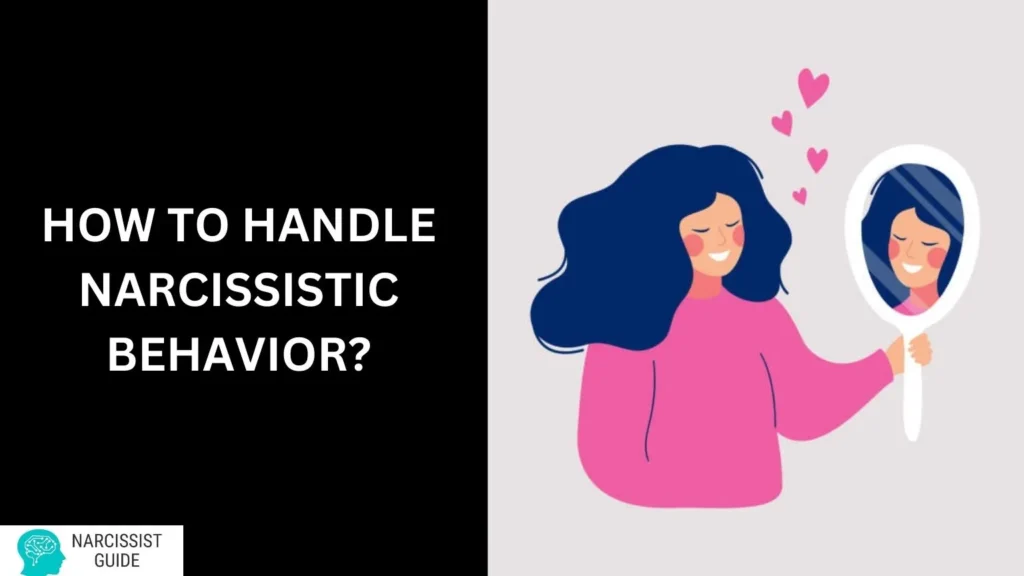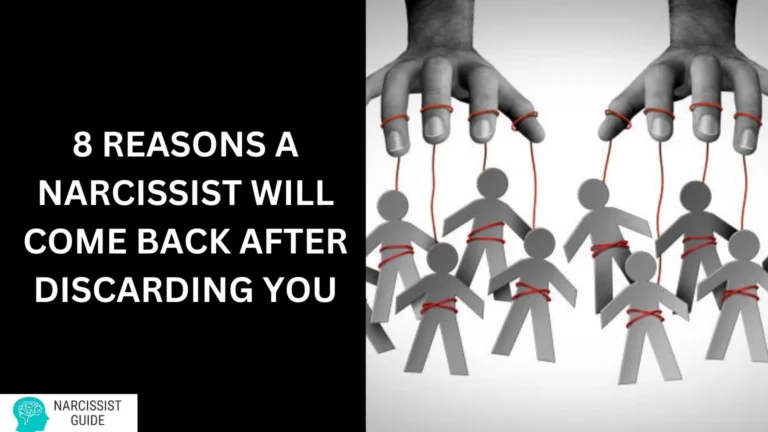7 Things Narcissists Do When You Go No Contact
Going no contact with a narcissist can be a crucial step in reclaiming your mental and emotional well-being.
However, if you’re contemplating this decision, it’s essential to understand the potential reactions and tactics a narcissist might employ in response to your silence.
Here are 7 Things Narcissists Do When You Go No Contact, and how you can navigate these challenges effectively.

Understanding Narcissism and No Contact
Before diving into the behaviors of narcissists when you choose to cut ties, it’s essential to understand what narcissism entails.
Narcissists often display a lack of empathy, an inflated sense of self-importance, and a constant need for admiration.
These traits can manifest in various ways, especially when they feel threatened by the loss of control that comes with having no contact.
What Is Narcissism?
Narcissism is a personality trait characterized by self-centeredness, a lack of empathy, and an excessive need for admiration. Individuals with narcissistic tendencies often manipulate relationships to maintain control and validation.
The Importance of Going No Contact
Going no contact means cutting off all communication with the narcissist. This strategy can help you heal and regain your sense of self. It can be especially vital if you’ve experienced emotional or psychological abuse.
7 Things Narcissists Do When You Go No Contact
Deciding to have no contact with a narcissist is often a necessary step for your mental and emotional well-being.
However, this decision can provoke various reactions from the narcissist, many of which are manipulative and designed to regain control over you. Here are seven common tactics narcissists may employ when you cut off communication:
1. Play the Victim
Narcissists often have a flair for drama, and one of their first responses to your no contact rule is to adopt the victim role.
They may claim to mutual friends or family members that you have abandoned them or that they are heartbroken without you.
This tactic is designed to elicit sympathy and turn others against you, reinforcing their narrative as the wounded party.
2. Send Mixed Signals
After you go no contact, you might receive sporadic messages from the narcissist that seem caring or concerned.
However, these communications are often followed by negativity or hostility. By sending mixed signals, they aim to keep you emotionally invested and confused, making it harder for you to stick to your decision.
3. Spread Rumors
In an attempt to regain control and manipulate your reputation, narcissists may resort to spreading false information about you.
They could tell exaggerated stories about your actions or intentions to paint you in a negative light. Be prepared for this and focus on maintaining your integrity, regardless of what they say.
4. Attempt to Guilt You
Guilt is a powerful manipulation tool, and narcissists often use it to regain your attention. They may remind you of past favors or assert that they were always there for you during difficult times.
This tactic aims to make you question your decision to go no contact, stirring up feelings of obligation and remorse.
5. Use Social Media to Their Advantage
Social media can be a playground for narcissists seeking attention and validation. After you have no contact, they may post passive-aggressive messages or share images designed to provoke a reaction from you.
Staying away from their online presence is crucial to maintain your peace of mind and avoid unnecessary emotional turmoil.
6. Engage in Hoovering
Hoovering is a tactic used by narcissists to “suck” you back into their lives. This could involve them reaching out with promises of change, expressing how much they miss you, or attempting to rekindle your relationship. Recognizing this behavior is crucial to resisting the pull back into a toxic relationship.
7. Attempt to Enlist Allies
Narcissists may try to rally mutual friends or family members to confront you about your decision to go no contact.
They might present a skewed version of events to gain support for their cause. It’s essential to stay firm in your decision and communicate with those who understand your situation.
How to Handle Narcissistic Behavior?

Dealing with narcissistic behavior can be challenging, especially if you find yourself in a relationship with a narcissist or encountering narcissistic traits in someone you know. Here are some effective strategies to help you manage and cope with narcissistic behavior.
Establish Firm Boundaries
Set clear boundaries regarding communication and interactions. Remind yourself why you went no contact and stay committed to your decision.
Seek Support
Connect with supportive friends, family, or professionals who understand your situation. Talking about your experiences can help you process your emotions and reinforce your decision.
Focus on Self-Care
Prioritize your well-being through self-care practices. Engage in activities that promote mental and emotional health, like exercise, meditation, or pursuing hobbies that bring you joy.
People also ask
How does the narcissist react when he realizes you no longer care?
When a narcissist realizes you no longer care, their reactions can vary, but they typically include the following:
Increased Anger or Rage: They may react with hostility, feeling threatened by your indifference, which undermines their sense of control.
Manipulative Tactics: Narcissists often resort to manipulation, such as guilt-tripping or playing the victim, to elicit a reaction from you and regain your attention.
Hoovering Attempts: They might try to “suck” you back into their orbit through love-bombing or false promises of change, hoping to re-establish a connection.
Spreading Rumors: To damage your reputation, they may spread lies or gossip to undermine your relationships with others.
Self-Destructive Behavior: If they sense a loss of control, they might engage in self-pity or destructive actions, trying to evoke sympathy or attention.
What does a narcissist think during no contact?
During no contact, a narcissist may experience a range of thoughts and feelings, including:
Confusion and Frustration: They may struggle to understand why you have cut off communication, feeling bewildered by your decision.
Anger and Resentment: They often feel betrayed or angry, perceiving your silence as a personal attack on their ego.
Desperation for Control: Narcissists might think of ways to regain control, plotting manipulative tactics to draw you back into their lives.
Self-Pity: They may dwell on feelings of victimhood, believing they are suffering unjustly because of their actions.
Attempts to Devalue You: To cope with their hurt, they might convince themselves that you were never that important or that you are the problem.
How to trick a narcissist into leaving you alone?
Tricking a narcissist into leaving you alone can be challenging, but here are some strategies to consider:
Be Unpredictable: Change your routine and responses. If they can’t predict your reactions, they may lose interest in trying to engage with you.
Use Indifference: Show little emotional response to their attempts at communication. Narcissists thrive on attention, so your lack of engagement may frustrate them.
Set Firm Boundaries: Clearly communicate your boundaries and stick to them. Narcissists often back off when they realize you are serious about not engaging.
Limit Availability: Gradually reduce your availability for conversations or meetings. This makes it harder for them to engage with you.
Divert Conversations: When they try to manipulate or engage, redirect the conversation to neutral topics or give short, uninterested responses.
Get Support: Involve mutual friends or family to reinforce your boundaries, making it clear that you don’t want contact.
Conclusion
In Conclusion, 7 Things Narcissists Do When You Go No Contact, Going no contact with a narcissist can be a challenging but liberating experience.
Understanding their typical tactics can help you prepare for their reactions and maintain your boundaries.
Remember, your well-being is paramount, and reclaiming your peace is worth the struggle. Stay strong and focus on healing as you navigate this difficult journey.

I’m Dr. James, and I’m glad you’re here. With years of experience in understanding and addressing the complexities of narcissistic behavior, I’ve dedicated my career to helping individuals navigate the challenging dynamics that come with narcissism, whether it’s in personal relationships, workplaces, or family settings.






